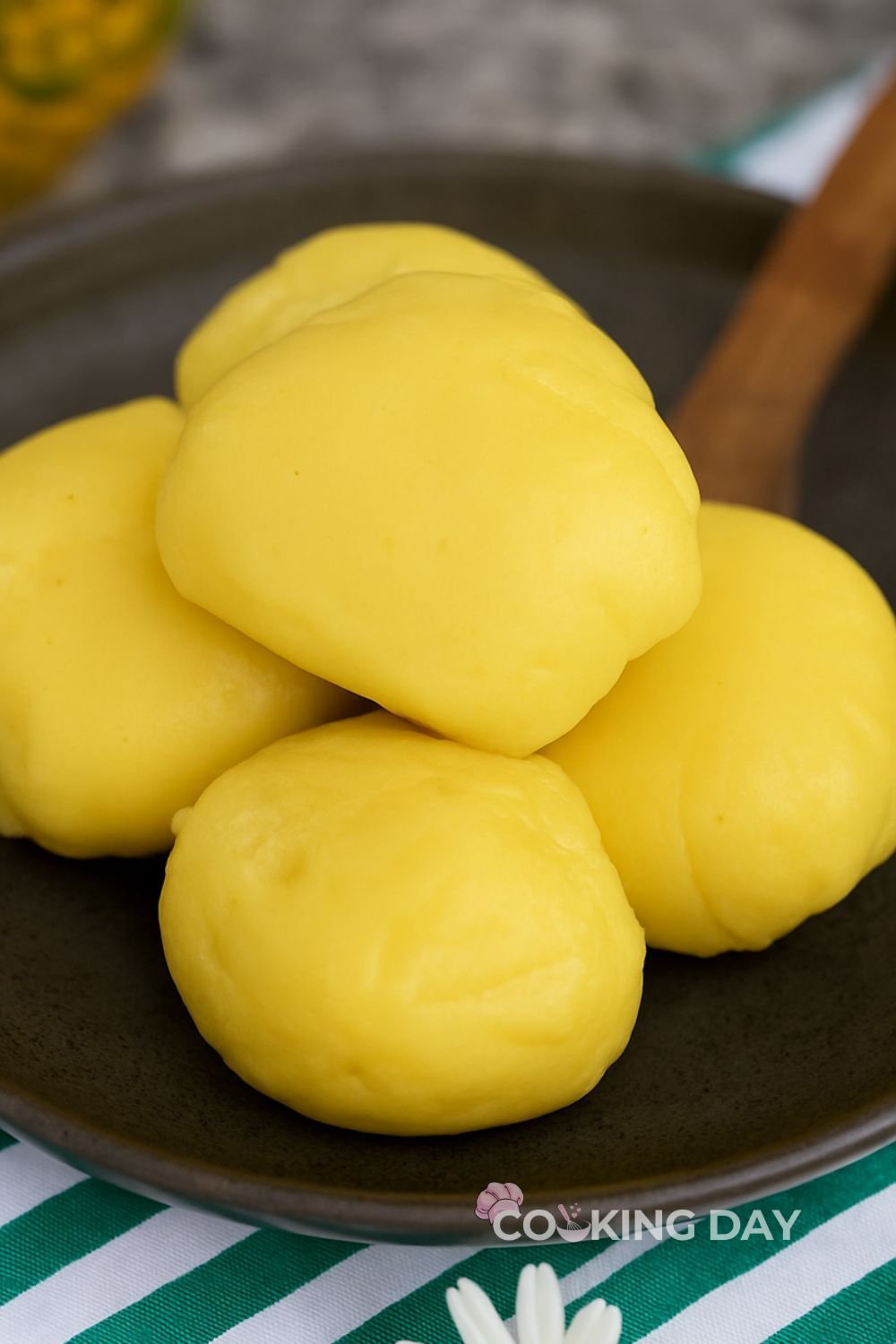Some links on this page are affiliate links. This means we may earn a commission at no additional cost to you if you click through and make a purchase, you can check our Affiliate Disclosure. Thank you for your support!
How to Make Authentic Fufu Recipe? Welcome to the warm and vibrant world of West African cuisine, where today, we’re diving into the heart of a classic dish known far and wide for its comforting embrace and cultural significance—Fufu. This delightful staple, a true cornerstone of Nigerian and West African meals, invites us into a story rich with tradition, nourishment, and the joy of communal dining. Whether you’re a seasoned fufu aficionado or a curious food explorer, today’s journey into making fufu is bound to leave you enriched and eager to gather around the dining table. So, let’s roll up our sleeves and get ready to transform cassava and plantains into something truly magical!
Origin of Authentic Fufu Recipe: A Culinary Heritage
Fufu is more than just food; it’s a legacy. Originating from West Africa, this staple has found its way across various cultures and regions, each adding its unique twist to the recipe. Traditionally made from cassava, yams, or plantains, fufu is a versatile dish that pairs wonderfully with rich, flavorful soups like Egusi, Okra, and light, spicy broths.

Health Benefits: Rooted in Goodness
Cassava, the star ingredient, is a powerhouse of energy, providing vital carbohydrates and vitamin C. Its high fiber content aids digestion, making fufu not only a soul-satisfying meal but also a boon for your digestive health. Plantains, on the other hand, offer a wealth of vitamins A and C, potassium, and magnesium. Together, they create a meal that’s not just delicious but also nutritious.
Culture: The Art of Eating Together
In many West African homes, authentic Fufu recipe is more than a meal; it’s an experience. The act of sharing fufu recipe from a single platter deepens bonds, embodies hospitality, and celebrates togetherness. Eating fufu is traditionally a hands-on affair—literally! Pinching off a small ball of fufu, making an indentation to scoop up the soup, and enjoying the burst of flavors is a ritual that many cherish.
ALSO READ: How to Make Yummy Bobotie: Mastering South Africa’s Beloved Spiced Meat Dish
Why You’ll Love It: A Feast for the Senses
Fufu’s unique texture—soft, slightly stretchy, and wonderfully smooth—makes it a delightful sensory experience. Its subtle taste complements the bold flavors of West African soups, making every bite a harmonious blend of textures and tastes. Whether you enjoy the traditional pounding method or use a blender for convenience, making fufu is a rewarding process that brings a piece of West African culinary heritage into your kitchen.
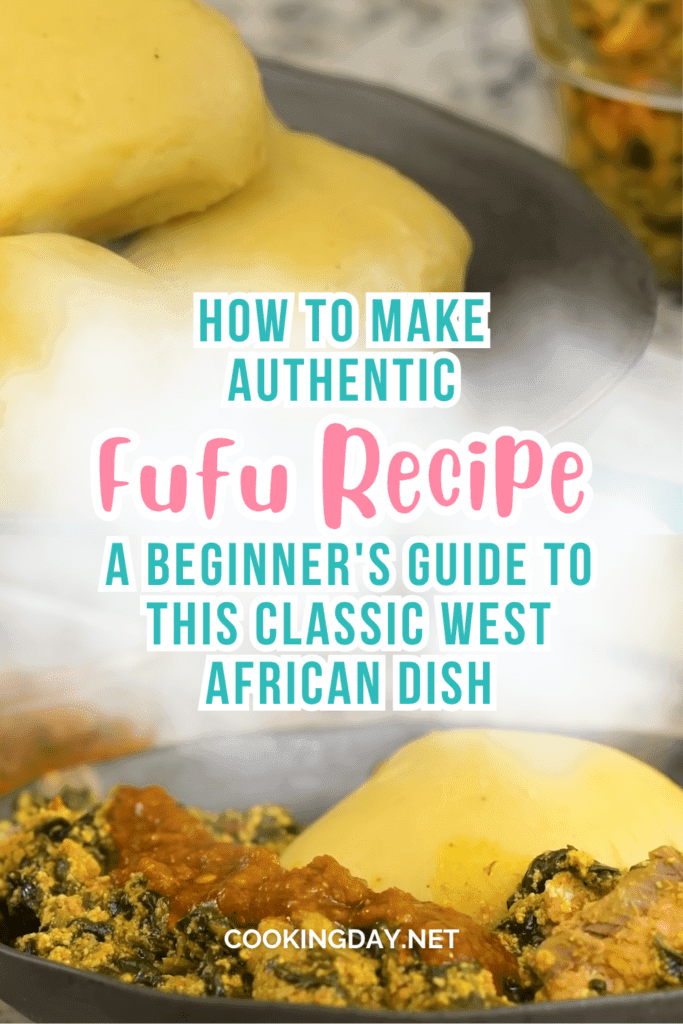
Let’s Get Cooking: Your Guide to Homemade Authentic Fufu Recipe
Ingredients:
- 2 cassava roots (also known as yucca)
- 2 green plantains
Instructions:
Prepare the Ingredients: Start by peeling the cassava and plantains. Cut them into small cubes to facilitate blending.
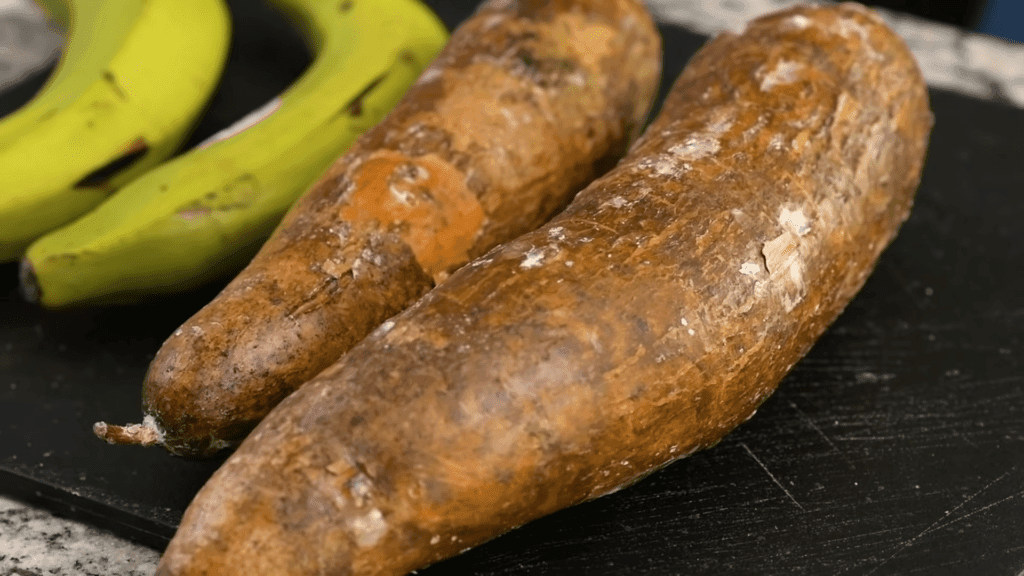
Blend: Place the cubed cassava and plantains in a blender with a little bit of water. Blend until smooth. Remember, too much water will make the fufu too loose.

Cooking Method 1 – Stovetop: Pour the blended mixture into a pot and cook over medium heat. Stir continuously to prevent lumps. Once it starts to thicken, add a bit of water to reach your desired consistency. Wrap the cooked fufu in plastic wrap to keep it from forming a crust.
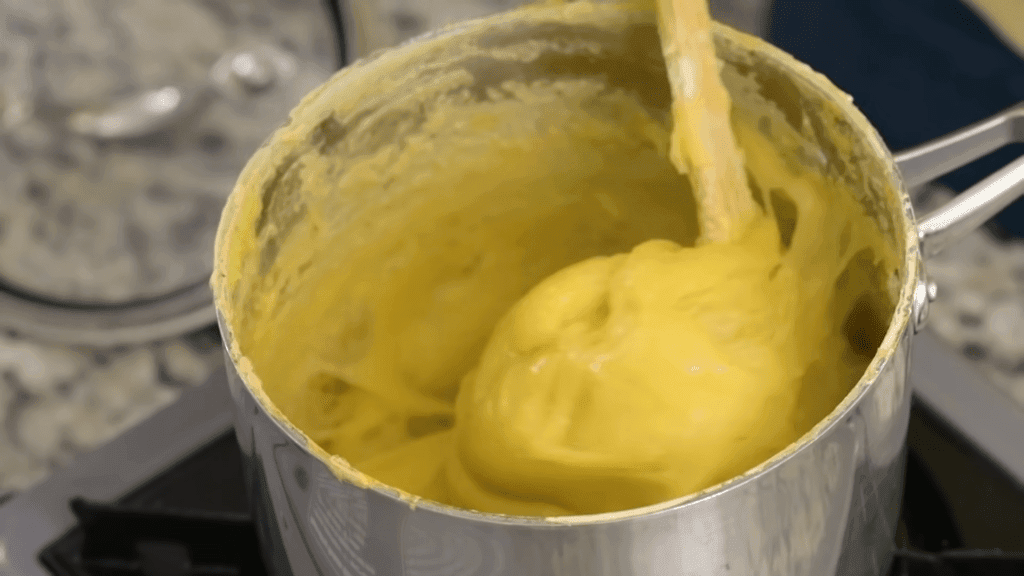
Cooking Method 2 – Microwave: For an even simpler method, cook the blended mixture in a microwave-safe bowl, covered, for about 10 minutes, stirring halfway through.

Wrap it in plastic wrap once cooked.
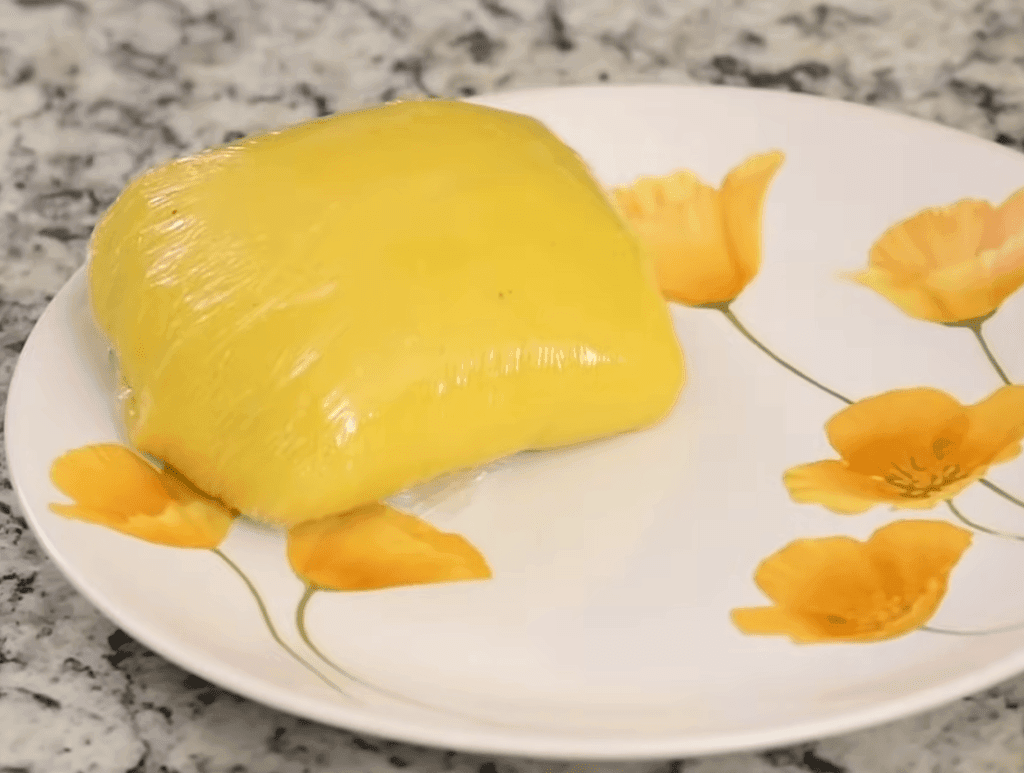
Serving Suggestions:
Traditionally, Authentic Fufu Recipe is served with rich, flavorful soups like Egusi, Okra, or light broths. It’s a versatile dish that beautifully complements the vibrant flavors of West African cuisine.
ALSO READ: How to Make Authentic Ghanaian Bofrot: A Step-by-Step Guide to Fluffy Puff Puff
Wrapping Up:
Making authentic Fufu recipe at home is a delightful venture into the heart of West African culinary traditions. It’s a way to explore new flavors, learn about different cultures, and most importantly, gather friends and family for a meal that’s both nourishing for the body and soul. So, why not make your next meal an adventure with this beloved West African dish? Here’s to cooking, sharing, and enjoying the rich tapestry of flavors that fufu brings to the table. Bon Appétit, or as they say in Nigeria, “Enjoy your meal!”
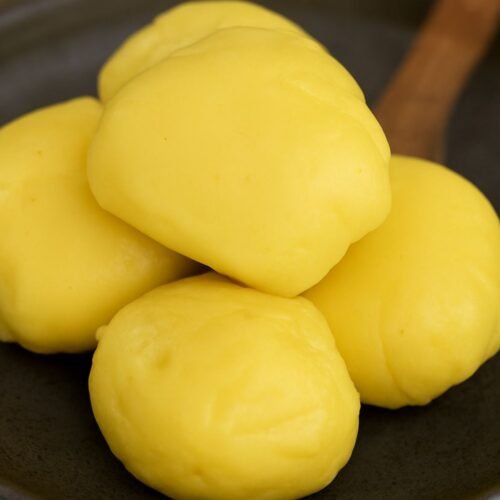
Authentic Fufu Recipe
Equipment
- Blender
- Medium pot (for stovetop method) or microwave-safe bowl (for microwave method)
- Wooden spoon (for stirring)
- Plastic wrap
Ingredients
- 2 cassava roots also known as yucca
- 2 green plantains
- Water as needed
Instructions
- Prepare the Ingredients: Peel the cassava and plantains. Cut them into small cubes to make them easier to blend.
- Blend: Place the cubed cassava and plantains into a blender with a little water. Blend until smooth, being careful not to add too much water to avoid making the mixture too loose.
- Cooking Method 1 – Stovetop:Pour the blended mixture into a pot over medium heat.Stir continuously to prevent lumps from forming. As the mixture thickens, add a small amount of water to reach your desired consistency.Once cooked, wrap the fufu in plastic wrap to keep it from forming a crust.
- Cooking Method 2 – Microwave:Pour the blended mixture into a microwave-safe bowl and cover.Cook on high for about 10 minutes, stirring halfway through to ensure even cooking.Once done, wrap the fufu in plastic wrap.
Notes
- Fufu is best enjoyed freshly made, but it can be stored in an airtight container in the fridge. To reheat, simply microwave for a few minutes or steam it.
- Adjust the texture by controlling the amount of water added during blending and cooking.
- Traditionally, fufu is eaten by hand and paired with thick, flavorful soups.

